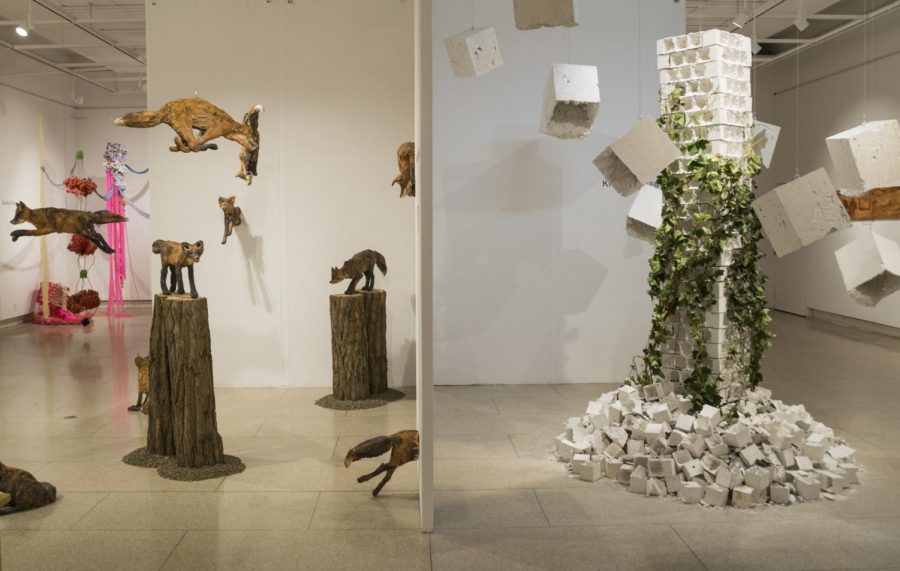Woody Allen’s 39th installment will, among other things, quench an intellectual cinematic thirst that has been snoozing in a den of stupid-comedies since the Oscars, save those of you who watched any of the late HBO miniseries’ or movies, including “John Adams,” “Recount” and “Generation Kill.”
In “Vicky Christina Barcelona,” a type-A lanky brunette, a free-spirited blonde artist in search of her calling, an attractive and impulsive established painter and, in the words of The Economist, a “sloe-eyed, chain-smoking Iberian hurricane” are tossed together in a mixture that – in the end – reveals how treacherous and impatient, yet astonishingly close to inconsequential, an episode of romance can be.
The backdrop, Spain’s northeastern city of Barcelona, is idyllic in the sense that it strongly appeals to the three of the movie’s senses: culture, art and romantic getaways.
Vicky (Rebecca Hall) is in it for the culture. Her pursuit of a master’s degree in the enigmatic subject of Catalan Identity takes her to visit and live with a distant relative and her husband. With her, she takes her love for GaudÃ, her love for the Spanish guitar and her complimentary antonym, Christina.
Christina, played by Woody Allen’s late obsession, Scarlett Johansson, is in it for the art. While she masks her purpose in the idealistic hope of somehow getting her first big break in the aesthetic world, in reality, she has no premeditated strategy for subsistence, let alone for getting her art noticed. To Barcelona, she takes a camera, an open mind and pipe dream she will stop at nothing to realize.
What they soon realize, however, is that regardless of their diametrically opposing personalities and aspirations, their trek through Barcelona’s gothic architectural forest and cultural shrubbery is a similar one. They experience spontaneity and love and challenge their seemingly uneventful lifestyles all the while attempting to keep a sense of direction and purpose.
The movie moves along swimmingly, like any decent romance novel, until Juan Antonio, played by the deceptively attractive Javier Bardem, turns it on its head by impulsively inviting the two women to go with him to Oviedo. Christina enthusiastically and Vicky reluctantly subscribe Juan Antonio’s proposal, and the movie takes off from there.
Perhaps the most important variable in Allen’s romantically melancholic equation, Maria Elena, played by the versatile Penelope Cruz, takes the movie by storm, intrepidly injecting into it the danger, unpredictability and Latin fire it necessitates to become a classic. She is Juan Antonio’s ruthlessly emotional ex-wife who teeters on the brink of both genius and insanity (she is a highly-acclaimed modern artist and, during their relationship, nearly killed Juan Antonio with a knife).
Not only should Cruz get an Academy Award nomination for her performance, but she should, finally, win one (most likely for best actress in a supporting role). This romance would have been lackluster and cliché without Maria Elena.
“Vicky Christina Barcelona” is a return to cinematic prominence for Woody Allen, who, since “Match Point,” his 2005, seamless dark-romantic drama, has been in a slump. So far, this movie is this year’s best motion picture. But we will have to wait until December’s dramatic onslaught, which includes “Milk,” “Revolutionary Road,” “The Curious Case of Benjamin Button” and “The Reader,” among others, to find out how Allen’s flick will match up with the one’s tipped so far to steal the show.





